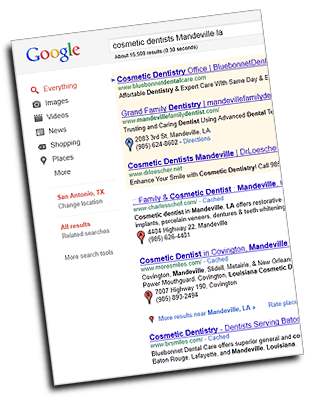
Of course if you have a terrible website design, your site is hard to navigate or looks amateurish, then you will lose the battle right there. However the most modern, accessible and attractive website design in the world will not compensate for bad search engine optimization resulting in your site being hard to find or effectively invisible. Due to this, there is an entire profession that has developed concerned with nothing but best practices for search optimization and making websites rank well in google searches.
Fortunately SEO professionals are helped by Google which gives frequent and detailed updates as to where they are going with their search strategy and what kinds of sites they are giving high marks to. Which brings us to this post, and the latest notification from Google. Those of you familiar with Cook Profitability Services website design and search engine optimization will know that we strongly favor websites with on-site blogging capability. This allows the website end-user to actively blog and keep his or her website “fresh” with regularly updated content. Well this function just took a huge step into the limelight with a new announcement from the Google development team that they are placing more emphasis on the “fresh factor”. So look lively people, you need to get onto your blog and start writing and posting.
As I have mentioned elsewhere, this blogging function is one that is best done by the actually business owner or employee. The reason for this is that hiring some guy from India to write articles about your medical or dental practice will get you content for your website but will never get you any kind of following. It’s like being willing to buy a ticket in the lottery, but only buying tickets for lotteries that have already closed. Yes, you are buying tickets, but you cannot win no matter how many times you buy and no matter how much positive thinking you do.
The internet is in the end, just a machine. Where it becomes a phenomena, it is a people phenomena, which means it is an interest phenomena. In other words where the internet seems to “give” huge fame and success to a cat playing piano, it is actually serving solely as a channel for human interest. When you are designing a website and doing search engine optimization you must ask yourself this question; “What am I placing at the end of my rainbow?”. If there is no pot of gold, you can be assured that there will never be a gold rush. It is common practice in cheap, low end SEO to load up a website with huge amounts of low quality, uninteresting, bumpf, that no person in their right mind would ever read.
Yes, it has the keywords and yes, it may even push the website up. But if you are going to take the time to create content, why not create great content that is interesting and truly unique to you and your enterprise? For sure there is no guarantee that suddenly millions of people will come rushing to your website to watch you ramble about some arcane detail of your profession – but they might. Certainly dull, repetitive garbage is a sure solid guarantee that you will never get any rush of interest.
Work with your website designer. Make sure you have a way to quickly and easily get new content up on your site. And then do it and do it steady and regular. If you make it unique and interesting, who knows, maybe one day with world will want to know exactly how you learned to trim toenails on a pet bobcat, and watch the video!


